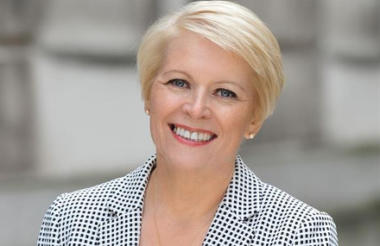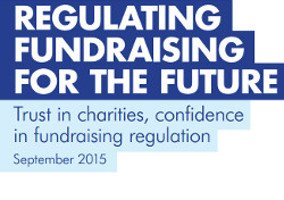The RNIB opposes the creation of the new Fundraising Regulator, and may not pay the levy to fund it, its chief executive said today.
Lesley-Anne Alexander (pictured) told Civil Society News that she would request more information before agreeing to pay, and that she felt threatened by an implication that if she did not pay the levy she would face statutory legislation.
She also criticised the composition of the regulator’s board, saying that it lacked charity expertise and had a “dismal skillset”, and questioned whether donations to her charity should pay the £300 a day the board members will be paid.
Fundraising levy
The Fundraising Regulator was proposed by the Etherington Review of fundraising regulation, which was set up at the request of the government following media scrutiny of charity fundraising practices.
It will replace the three bodies which currently have joint responsibility for fundraising regulation – the Institute of Fundraising, the Fundraising Standards Board and the Public Fundraising Association.
The regulator has asked the UK’s 50 largest fundraising charities to fund set-up costs of £750,000 between them. They will also be asked to contribute to a regular annual levy to fund the regulator, along with all charities with a fundraising spend over £100,000.
But Alexander has said she opposes the creation of the new regulator, and will request more information before paying either levy.
“I will be writing back to express my concerns and ask for more information about what I get for my money,” she said. “I don’t understand what benefit I get. Until we do then we won’t be willingly paying. There may come a time when we are forced to pay, and we will have to do so, but reluctantly.”
She criticised the make-up of the board of the Fundraising Regulator, which was announced last week.
“I think we need more people actively engaged with the sector on the board,” she said. “Because at the moment the skillset is dismal.”
‘Public don’t want donations going on quangos’
She said she objected to charitable money being spent on government-mandated projects, and that there had been “veiled suggestions” from government representatives that charities would be forced to pay if they did not do so voluntarily.
“They said if we don’t pay up then they will legislate in our direction,” she said. “That feels like being threatened and I don’t like it.
“Why are we paying for a new government-sponsored quango? It’s completely ridiculous. The money to pay for this will come from public donations. Is that what my donors want their money going on? Paying for board members earning £300 a day. I’m not supposed to pay my own trustees but I’m supposed to use our donations to pay for these people?
“What about charities who get government grants? They aren’t allowed to spend that money to advocate on behalf of their beneficiaries but they can spend it on funding quangos?”
She said the correct decision was to improve existing regulators, not create new ones.
“I am positive about regulation, but we don’t need to layer on another level of regulation, on top of what’s already not working,” she said. “We already have a huge amount of regulation, including a Charity Commission. Why on earth do we need more? If the existing regulators can’t do the job, let’s fix them so they do.”
Regulator responds
A spokeswoman for the Fundraising Regulator said: "We recently wrote to the top 50 charities by fundraising expenditure, requesting a contribution to the set up costs of the Fundraising Regulator.
"This letter was a follow-up to an earlier letter to those charities from the Institute of Fundraising and the Public Fundraising Association. We have yet to receive a response from the RNIB."
Additional reporting by Hugh Radojev
Related stories












